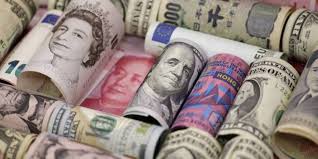The Central Bank of Nigeria have injected over $42.3 billion into the foreign exchange market between April 2018 and March to ensure liquidity in that segment of the economy.
The CBN usually intervenes in the forex market by injecting liquidity about three times a week.
The intervention is provided to authorised dealers in the wholesale segment of the market, as well as other sectors of the economy such as agriculture, manufacturing and Small and Medium Enterprises segment.
Customers that require foreign exchange for invisibles such as tuition fees, medical payments and basic travel allowance, are also allocated funds from the intervention.
An analysis of the intervention showed that the apex bank injected about $7.89bn into the market in the second quarter of last year.
ALSO READ: MAN backs CBN over policy on smuggling
The injection of liquidity into the forex market by the CBN rose to $11.88bn in the third quarter of last year.
However, the figure dropped to $10.72bn in the fourth quarter before rising to $11.81bn as of the end of March this year.
Findings showed that during the period, the CBN sustained its interventions at both the inter-bank and the Bureau De Change segments of the forex market.
However, the average exchange rate of the naira vis-à-vis the dollar at the inter-bank segment depreciated by 0.04 per cent to N306.84 to a dollar in the first quarter, relative to the level at end-December 2018.
Commenting on the impact of the apex bank’s intervention in stabilising the forex market, the director, corporate communications department, Isaac Okorafor, attributed the relative stability in the forex market largely to the continued intervention of the CBN.
The CBN spokesman further gave the assurance that the apex bank remained committed to ensuring that all the sectors continued to enjoy access to the forex required for the business concerns, whether in United States dollars or Chinese yuan.
He said the apex bank would continue to come up with measures that would ensure the value of the naira appreciates in the forex market.
He said, “The Importers and Exporters window was formed basically to sustain that market. We also have international money transfer operators. They also bring money that we also allowed to reflect market realities and that is another autonomous source.
“The currency swap has helped to stabilise the market. Because these are the demand that would have found itself in the dollar segment of the market.
“So we have been able to remove that and that also has helped to maintain stability.”
He said the apex bank would continue to sustain its intervention in the forex market until there was enough liquidity in the market.

 Entertainment5 days ago
Entertainment5 days ago
 Comments and Issues1 week ago
Comments and Issues1 week ago
 Comments and Issues1 week ago
Comments and Issues1 week ago
 Health7 days ago
Health7 days ago
 Comments and Issues1 week ago
Comments and Issues1 week ago
 Health3 days ago
Health3 days ago
 Football7 days ago
Football7 days ago
 Football7 days ago
Football7 days ago













